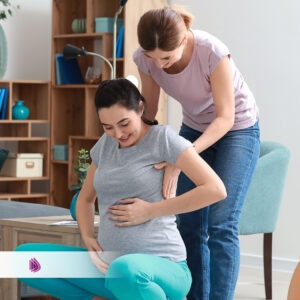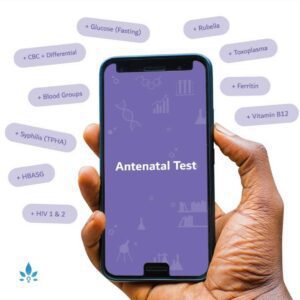How Eating Disorders can Affect Your Pregnancy


- Women struggling with eating disorders in pregnancy may be at risk of complications.
- Most women with an eating disorder have some understanding that how they eat is not healthy, especially during pregnancy.
- The two most common eating disorders are anorexia nervosa and bulimia nervosa.
- Getting pregnant while struggling with an eating disorder can be extremely overwhelming for a woman.
- On top of the mental health difficulties, risks have been linked to eating disorders in pregnant women.
- Women with eating disorders who are pregnant should be upfront and honest with their doctors and healthcare providers.
How common are eating disorders?
The World Health Organisation estimates that, globally, 70 million people have an eating disorder and that 90% of these cases are females. Whilst low body mass index (BMI) will mean that many of these women will stop having periods, some will still menstruate and become pregnant. For those women who are pregnant and have an eating disorder, extra care must be taken to monitor the health of the mother-to-be and her developing baby throughout the pregnancy.
What are the most common eating disorders?
The two most common eating disorders are anorexia nervosa and bulimia nervosa.
Anorexia is characterized by the extreme fear that a person is overweight, even when she is visibly dangerously thin. Women with this disorder will often severely restrict the calories they eat, exercise excessively, and use laxatives to increase weight loss by having frequent bowel movements.
Women with bulimia will binge eat. This means that in one sitting they may eat a huge number of calories, followed by purging, or self-induced vomiting. Where many anorexics are so thin they appear sickly, many bulimics are often a normal weight.
How can eating disorders affect a woman’s pregnancy?
Getting pregnant while struggling with an eating disorder can be extremely overwhelming for a woman. Pregnancy is a time of increased medical attention, and this includes having weight checks at every prenatal visit. Some women with eating disorders may skip appointments so they don’t have to undergo these regular weigh-ins, risking missing important checks and tests.
Most women with an eating disorder have some understanding that how they eat is not normal or healthy, and being pregnant on top of this can make them feel even guiltier. They will often understand that they need to gain weight to help their baby grow, but because of their disorder may become depressed or experience severe anxiety at the thought of becoming “fat.” They may also feel a lack of control as their uterus and abdomen grow despite everything they are doing to stay thin.
Medically speaking, having an eating disorder during pregnancy can be dangerous for both a mother and her growing baby. The following increased risks have been linked to eating disorders in pregnant women:
- Dehydration and electrolyte imbalances in the mother
- Maternal cardiac irregularities, such as arrhythmias which can be fatal
- Worsening antenatal depression and anxiety
- Premature labour and delivery
- Growth restriction and low-birth weight babies
- Respiratory distress in the newborn
What should you do if you have an eating disorder whilst bring pregnant?
Women with eating disorders who are pregnant should be upfront and honest with their obstetric provider and know that they will not be judged for admitting they need help. Doctors or midwives will make sure they receive extra care, such as from a qualified nutritionist, psychiatrist, or support group. Additional ultrasounds of the baby may be ordered to make sure he or she is growing appropriately.
After delivery, it is important that the new mother undergoes regular checks and is closely monitored. Many try to lose the extra weight that they have gained as quickly as possible, but this can be detrimental to their health and that of their child, particularly if they are breastfeeding. Frequent monitoring should ensure that weight loss is gradual and healthy and identify early warning signs of postnatal depression.
Sources:
- The American Congress of Obstetricians and Gynecologists
- National Eating Disorders Association













































